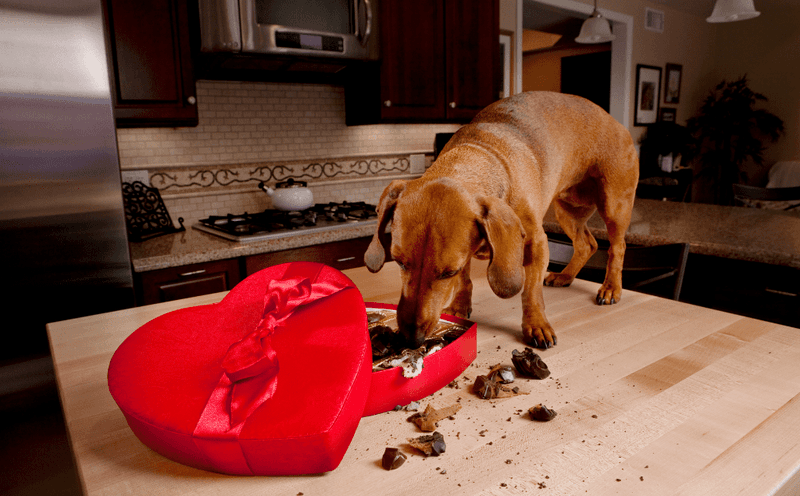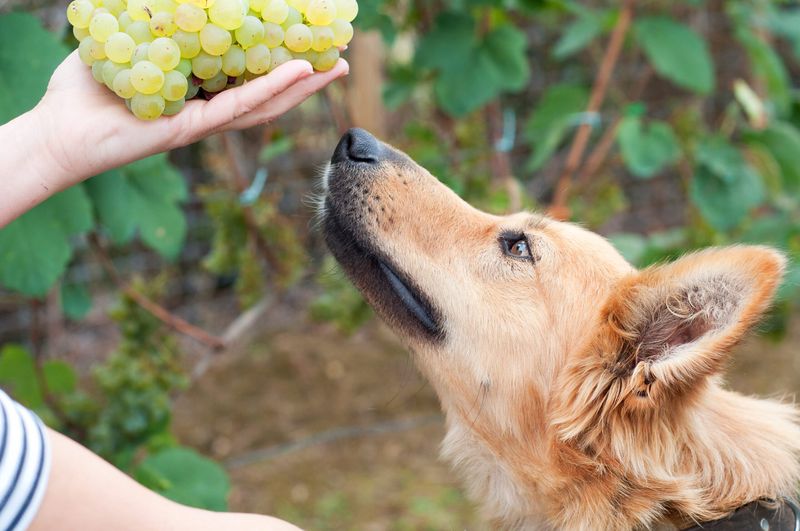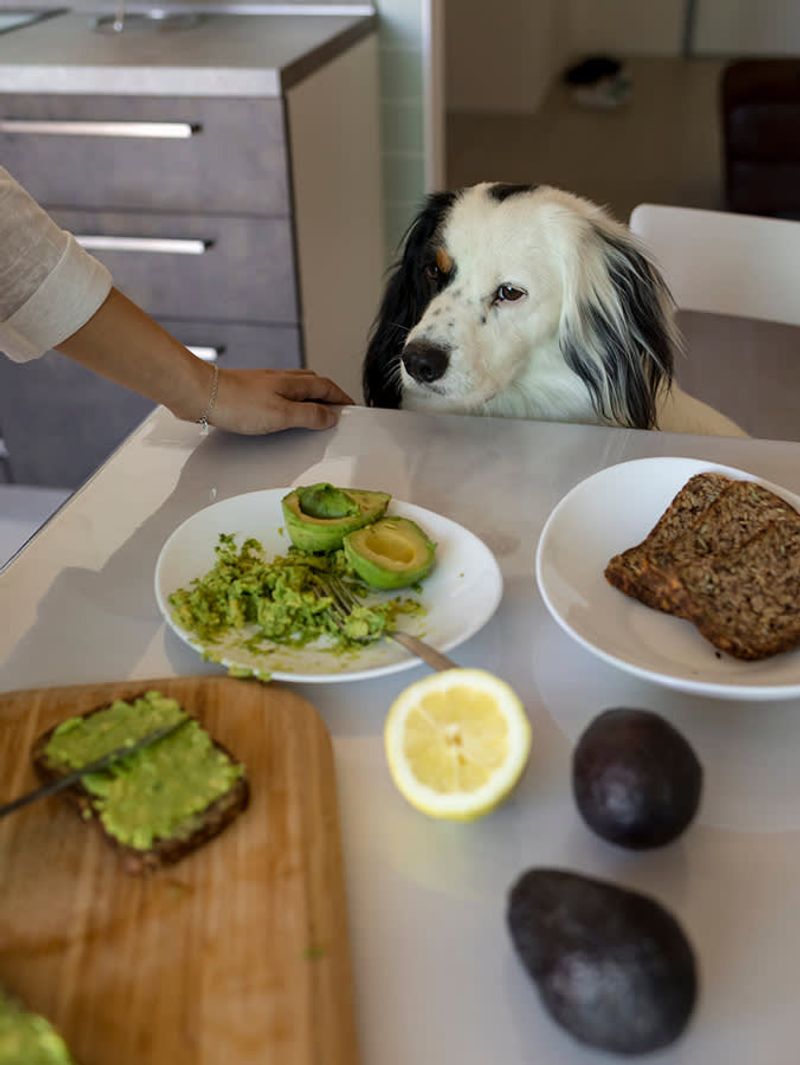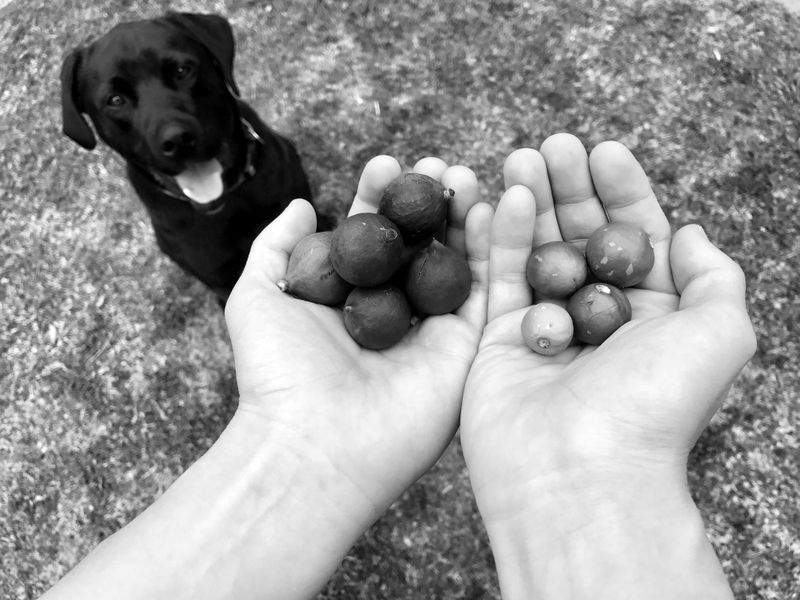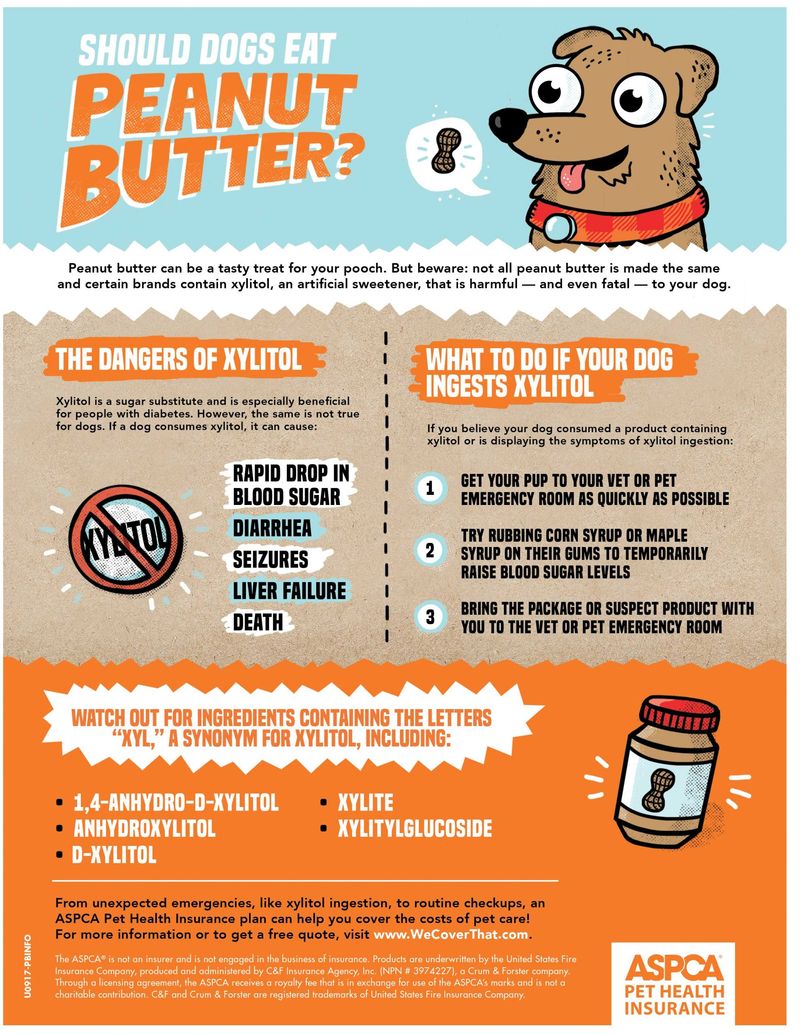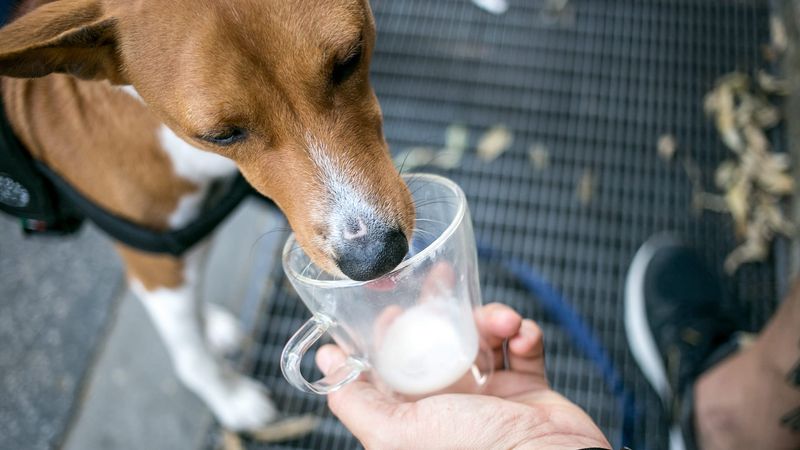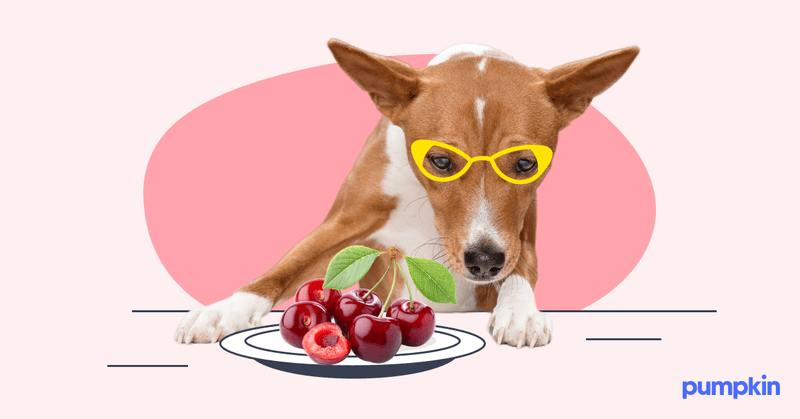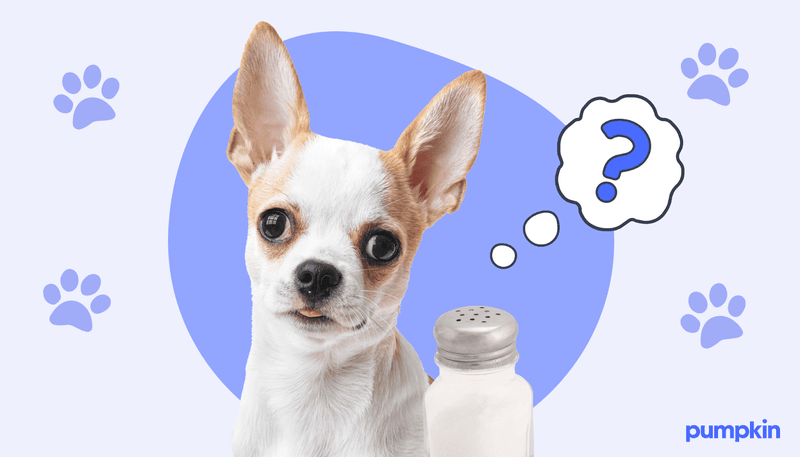Sharing food with our furry companions is a common gesture of love, but some human foods can be harmful to dogs. Understanding what foods pose risks can help keep our pets safe and healthy. Here are 13 common human foods that are dangerous for dogs.
Chocolate
A classic treat for humans, chocolate can spell trouble for dogs. The culprit is theobromine, a compound that dogs metabolize slowly. This can lead to toxic buildup, causing symptoms like vomiting, diarrhea, and even heart issues.
Dark chocolate and baking chocolate contain higher levels of theobromine, making them particularly dangerous. Dogs lack the enzymes needed to break down this stimulant, amplifying its effects.
Did you know? Even small amounts of chocolate can be harmful. It’s best to keep all chocolate products out of reach of inquisitive noses. A treat for us, but a threat to them.
Grapes and Raisins
Seemingly harmless, grapes and raisins can cause kidney failure in dogs. The exact toxic substance remains a mystery, but the effects are well-documented.
Even a small handful can lead to severe symptoms like vomiting, lethargy, and abdominal pain. Within a short time, dogs may suffer from dehydration or decreased urination.
Curiously, not all dogs are affected equally, but it’s impossible to predict which ones will react severely. Better safe than sorry, so it’s wise to avoid sharing these fruits with your canine companions altogether.
Onions and Garlic
Onions and garlic, culinary staples, are toxic to dogs. They contain thiosulfate, which can damage red blood cells and cause hemolytic anemia.
Whether raw, cooked, or powdered, these alliums are hazardous. Symptoms include weakness, vomiting, and breathlessness. Even small amounts can be harmful, especially if consumed over several days.
Here’s a fact: Japanese dogs seem particularly susceptible to onion toxicity. Keeping these pungent bulbs out of your pet’s diet is crucial for their well-being. They may enhance our dishes, but they are perilous for our pets.
Avocado
Avocados, popular in health circles, contain persin, a fungicidal toxin harmful to dogs. The flesh, pit, and even the leaves are dangerous.
Dogs eating avocados may experience vomiting and diarrhea. The seed poses an additional risk, as it can cause an intestinal blockage if ingested.
While avocados offer various health benefits for humans, they are not suitable for dogs. Keeping them away from your pet’s reach is critical to avoid any health issues. A superfood for us, but a super no for them.
Macadamia Nuts
Macadamia nuts, a delightful treat for us, are highly toxic to dogs. Even a small number can lead to serious issues like weakness, vomiting, and tremors.
The exact toxin remains unknown, making these nuts unpredictable. Ingesting them may cause temporary paralysis in the hind legs or gastrointestinal distress.
Interestingly, symptoms usually appear within 12 hours and can last up to 48 hours. It’s best to keep these nuts out of your dog’s reach. Enjoy them yourself, but ensure your furry friend stays safe and sound.
Alcohol
Alcohol affects dogs much more severely than humans. Even small amounts can lead to alcohol poisoning, causing symptoms like vomiting, coordination loss, and even respiratory failure.
Dogs are unable to process alcohol effectively, leading to rapid intoxication. This can result in serious health issues, including damage to the central nervous system.
It’s surprising to think that even foods containing alcohol can be dangerous, so caution is essential. Safe for us in moderation, but potentially lethal for our canine friends.
Xylitol
A common sugar substitute, xylitol is found in many ‘sugar-free’ products. For dogs, it can be deadly, leading to rapid insulin release and hypoglycemia.
Ingesting xylitol can cause vomiting, loss of coordination, and seizures. In severe cases, liver failure may occur. Dogs are uniquely sensitive to this sweetener, making it crucial to keep sugar-free goods out of their reach.
Did you know? Even small amounts can be harmful, so vigilance is key. A sweetener for us, but a swift danger for them.
Coffee
Coffee, our morning savior, can be a nightmare for dogs. The caffeine content is toxic to them, leading to symptoms like restlessness, rapid breathing, and heart palpitations.
Dogs metabolize caffeine much slower than humans, making them more susceptible to its effects. Ingesting coffee grounds or beans can be particularly hazardous.
Interestingly, caffeine is also found in tea and energy drinks. Keeping all caffeinated products away from your dog is essential to avoid any health scares. Energizing for us, but endangering for them.
Yeast Dough
Raw yeast dough can expand in a dog’s stomach, causing severe discomfort and even life-threatening conditions. As the dough rises, it releases alcohol, leading to alcohol poisoning.
Symptoms include bloating, vomiting, and lethargy. The physical expansion can also cause stomach twisting, a serious condition requiring immediate veterinary attention.
Did you know? Some dogs are attracted to the smell of yeast, making it even more crucial to keep rising dough out of their reach. A baking staple for us, but a baking blunder for them.
Milk and Dairy
Many dogs are lactose intolerant, leading to digestive issues when they consume milk and dairy products. Symptoms like diarrhea and gas can occur, making dairy a risky choice.
While some dogs may handle small amounts, others can experience severe reactions. The lactose content is difficult for them to digest, causing discomfort.
It’s fascinating that while puppies can digest milk, many adult dogs lose this ability. Dairy delights for us, but a digestive dilemma for them.
Cherries
Cherries offer sweet enjoyment for us but pose risks for dogs. The pits, stems, and leaves contain cyanide, a toxic substance.
Ingesting cherries can lead to difficulty breathing, dilated pupils, and even organ failure. The risk comes from the cyanide, which dogs cannot process effectively.
Did you know? Even if the fruit is pitted, the risk of intestinal blockage remains. Sweet for us, but sour for dogs’ health.
Raw Eggs
Raw eggs can be a source of salmonella and biotin deficiency in dogs. The risk of bacterial infection is significant, causing symptoms like vomiting and diarrhea.
Biotin deficiency can lead to skin problems and poor coat condition. Dogs ingesting raw eggs regularly may face these issues without obvious warning signs.
Interestingly, cooked eggs do not pose the same risks and can be a healthy treat. Raw risk for them, cooked comfort for us.
Salt
Salt, a seasoning essential for us, can lead to sodium ion poisoning in dogs. Symptoms include excessive thirst, urination, and even seizures.
Dogs ingesting large amounts of salt may experience vomiting, diarrhea, and tremors. The risk increases with access to salty foods or ocean water.
Did you know? Dogs are more sensitive to salt, making it vital to monitor their intake. Salty snacks for us, but suffering for them.

